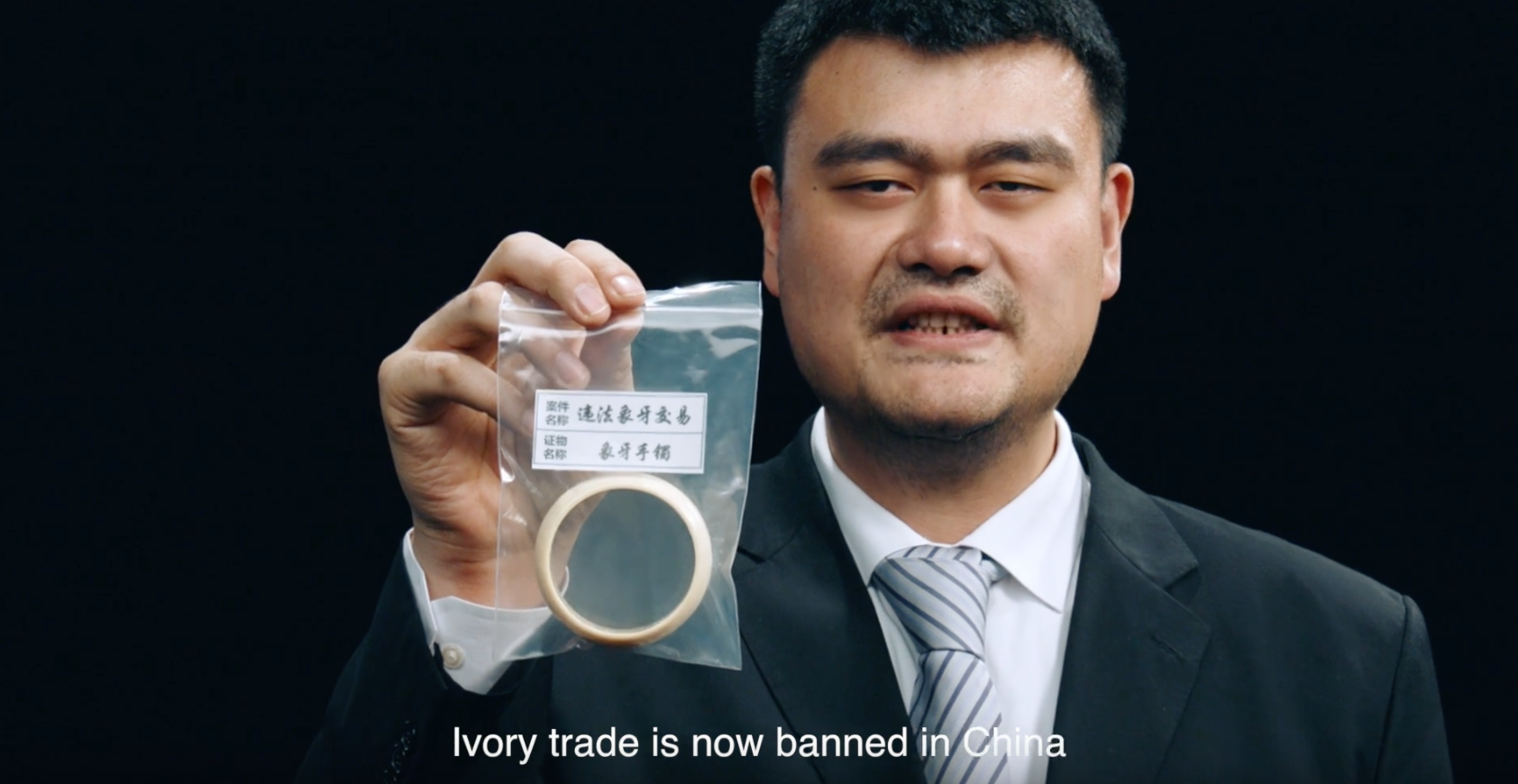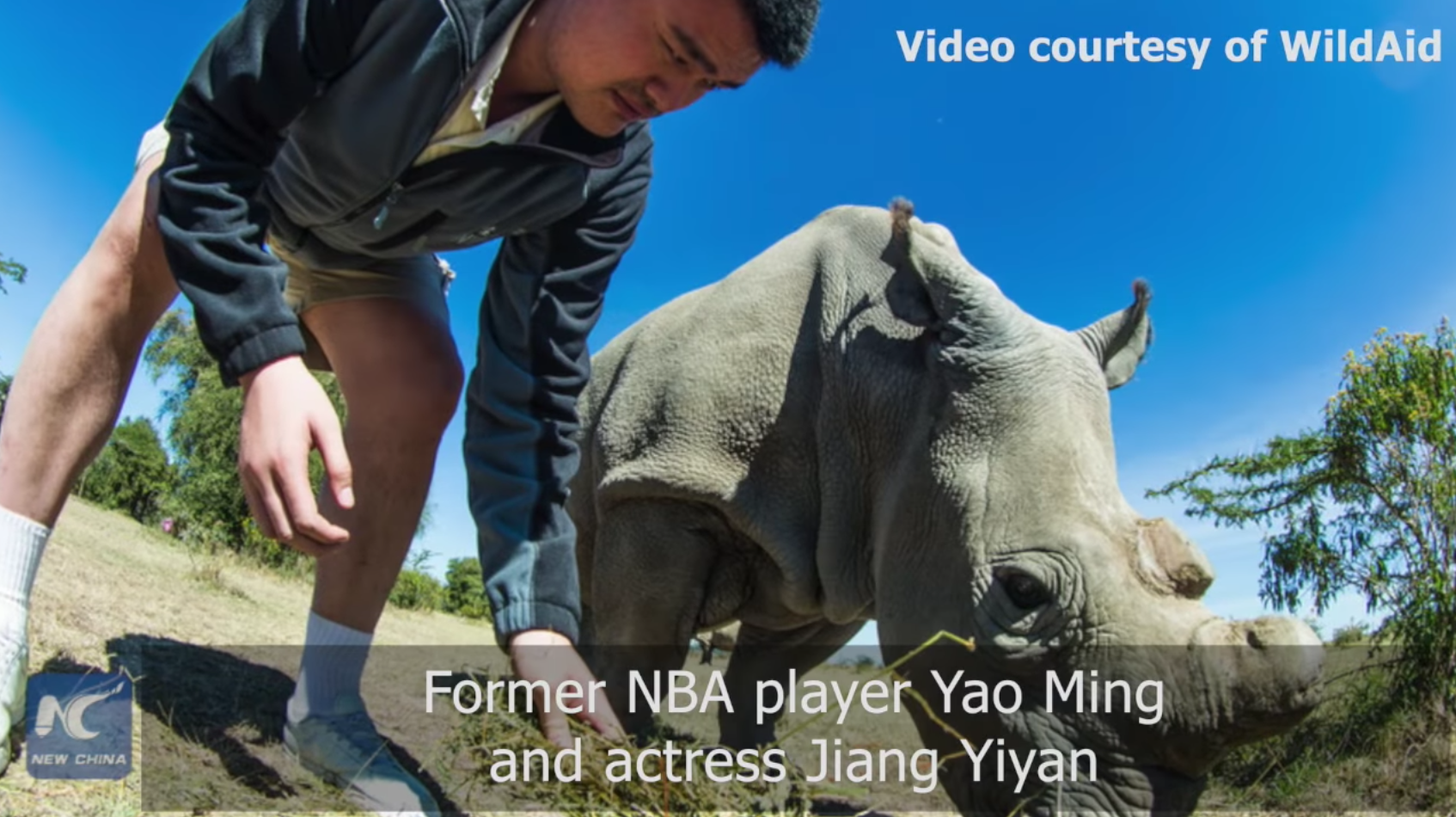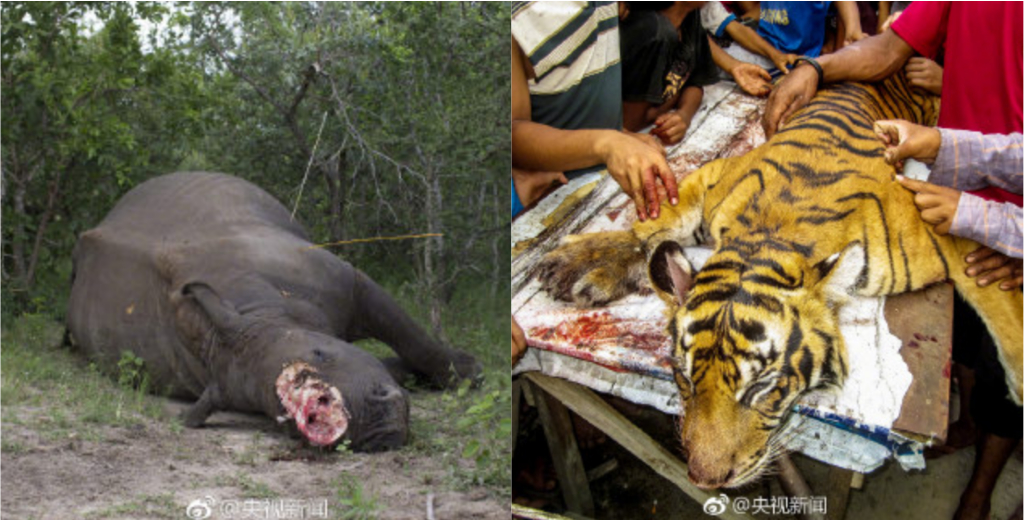Many large mammals are on the verge of extinction in the wild.
Last month, China announced abolishing its ban on trading tiger and rhinoceros (rhino, in short) parts and introduced new regulations which were put on hold now.
Abolishing ban
On Oct. 29, China released a statement to announce new regulations on the trade and use of rhino and tiger parts as well as related products.
Under these new regulations, trading and using tiger and rhino parts are now allowed for these reasons if permission is granted from the respective agencies:
1. Scientific purpose
2. Conservational and educational promotion and displays
3. Medical research and treatments in hospital and by doctors that meet requirements (limited to rhino and tiger parts sourced from animals raised in captivity other than the zoos)
4. Cultural exchanges
What came with the announcement of this new policy was also the removal of the 25-year strict ban on tiger and rhino parts trading which have been critical in protecting the tiger and rhino populations.
The ban forbade any form of trade, sale and purchase, use of tiger bones and rhino horns for medical purposes and traditional Chinese medicines.
Back then, the Chinese were also encouraged to look into medicinal alternatives to tiger bones and rhino horns through research and development.
International outcry
Following this announcement, conservation groups around the world such as the World Wildlife Fund (WWF) expressed their 'profound concern', calling it a massive setback to conservation efforts.
This announcement also sent a confusing signal as China just implemented a ban on ivory trade in 2017 which was proven to be effective; the price of raw ivory dropped by 65 per cent over the past year and there was an 80 per cent decline in the ivory seized from entering China.
 Screenshot from WildAid video
Screenshot from WildAid video
WWF spokesperson, Margaret Kinnaird, cautioned that this change in regulation of tiger and rhino trade will fuel illegal wildlife trade and was viewed as contradicting China's stance on wildlife protection.
"China's experience with the domestic ivory trade has clearly shown the difficulties of trying to control parallel legal and illegal markets for ivory. Not only could this lead to the risk of legal trade providing cover to illegal trade, this policy will also stimulate demand that had otherwise declined since the ban was put in place.”
“With wild tiger and rhino populations at such low levels and facing numerous threats, legalized trade in their parts is simply too great a gamble for China to take. This decision seems to contradict the leadership China has shown recently in tackling the illegal wildlife trade, including the closure of their domestic ivory market, a game changer for elephants warmly welcomed by the global community.”
Another conservation group, WildAid, which has been working with Chinese celebrities like Yao Ming and Jackie Chan to reduce consumption of wildlife products, also expressed concerns.
 Screenshot from New China TV
Screenshot from New China TV
 Screenshot from WildAid video
Screenshot from WildAid video
Wildlife CEO Peter Knights said:
“If this new policy ends in commercial sales and plays out similarly to when ivory was legalized, poaching will skyrocket as traders look to increased demand and the ability to launder rhino horn.”
“And while tiger populations have stabilized in recent years, the danger is that this policy change could reinvigorate demand for tiger parts and also lead to an increase in poaching.”
U-turn
However, things took a positive turn recently.
State Council Executive Deputy Secretary-General Ding Xuedong said on Nov. 12:
"The issuance of the detailed regulations for implementation has been postponed after study.
The "three strict bans" will continue to be enforced: strictly ban the import and export of rhinos, tigers and their byproducts; strictly ban the sale, purchase, transport, carrying and mailing of rhinos, tigers and their byproducts; and strictly ban the use of rhino horns and tiger bones in medicine." (Emphasis ours)
Ding also reiterated China's 'consistent and firm' stance on wildlife protection and its willingness to work with the international community.
"I would like to reiterate that the Chinese government has not changed its stance on wildlife protection and will not ease the crackdown on illegal trafficking and trade of rhinos, tigers and their byproducts and other criminal activities."
"...the Chinese government is willing to work with the international community to jointly strive for protecting wildlife and building our harmonious and beautiful planet."
Top photo collage from CCTV News via Weibo
If you like what you read, follow us on Facebook, Instagram, Twitter and Telegram to get the latest updates.
